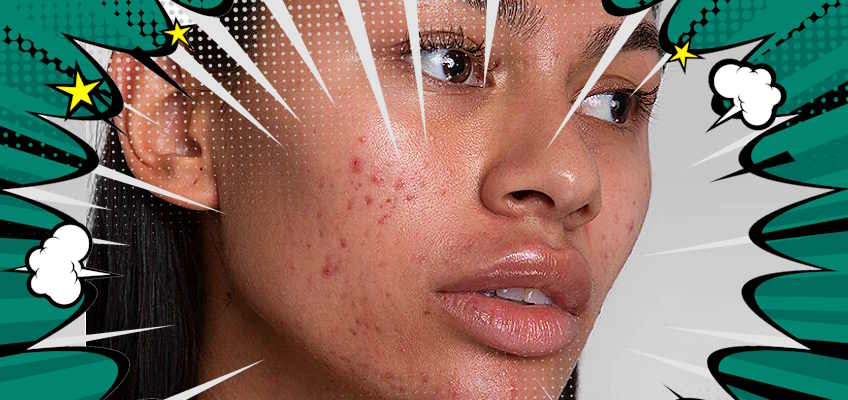Unveiling Radiance: A Complete Guide to Treating Hyperpigmentation
Table of Contents
Do you struggle with dark spots, uneven skin tone, or dull complexion? If you answered yes, you are not alone. Hyperpigmentation is a common skin concern that affects millions of people worldwide.
But don’t worry, there is hope! In this article, we will reveal the best hyperpigmentation treatment options available in 2024 to help you achieve radiant and flawless skin.
Let’s dive in!
Understanding Hyperpigmentation
Hyperpigmentation is a condition where some areas of the skin produce more melanin than normal, resulting in darker patches or spots. Melanin is the pigment that gives color to our skin, hair, and eyes. It also protects us from harmful UV rays.
However, sometimes melanin production can go haywire due to various factors, such as sun exposure, inflammation, hormones, or genetics leading to different types of hyperpigmentation. These include,
1. Sun-induced hyperpigmentation (Sunspots)
- Cause: Prolonged exposure to the sun’s UV rays triggers the overproduction of melanin.
- Characteristics: Flat, brownish patches that typically appear on sun-exposed areas, such as the face, hands, and shoulders.
2. Post-Inflammatory Hyperpigmentation
- Cause: Results from skin trauma or inflammation, such as acne, cuts, burns, or other injuries.
- Characteristics: Dark marks or spots that develop at the site of healed wounds or inflammations, often appearing as flat areas of increased pigmentation.
3. Melasma:
- Cause: Hormonal changes, often associated with pregnancy, birth control use, or hormonal fluctuations.
- Characteristics: Symmetrical, brownish patches on the face, particularly on the forehead, cheeks, and upper lip. Melasma is commonly referred to as the “mask of pregnancy.”
4. Body Hyperpigmentation:
- Cause: Similar to facial hyperpigmentation but can also result from friction, skin disorders, or clothing-related factors.
- Characteristics: Darkened patches on areas of the body beyond the face, such as the arms, legs, chest, or back.
-
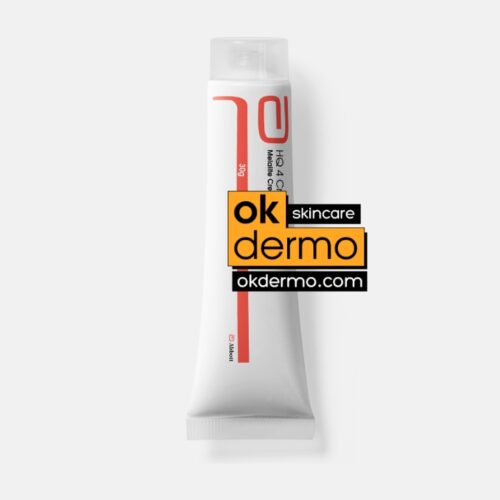
Pure Hydroquinone 4% Skin Whitening Cream
Hydroquinone 4% USP Skin Lightening Agent
Size: 20g / 0.7oz, 30g / 1.05oz
Brand name: Eldoquin, Melanox, Expigment, Eqinon, Melloderm
From USD $25.00 Select options -
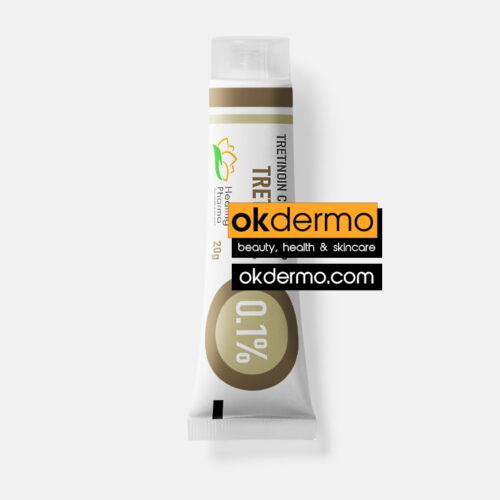
Retin-A® Tretinoin Topical Cream
Tretinoin Cream USP 0.025% / 0.05% / 0.1%
Size: 20g / 0.7oz, 30g / 1.05oz
Brand name: Retin-A, Vitacid, Renova, Avita, Refissa, Atralin, Tretin-X, Rejuva-A, Stieva-A, Tretinoïne, Retacnyl
From USD $26.00 Select options -
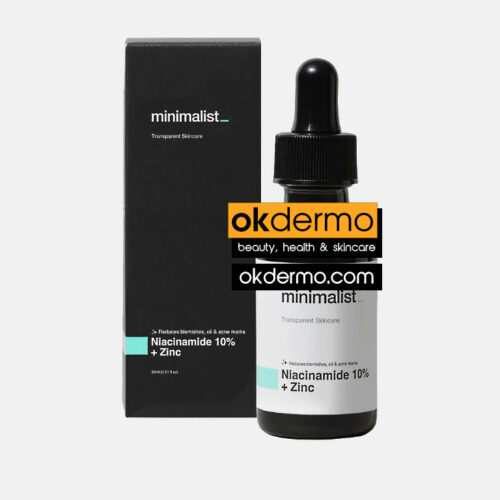
Minimalist® (Vitamin B3) Niacinamide 10% Face Serum
Nicotinamide / Niacinamide 10% + Antioxidant EUK-134 + Zinc + Hyaluronic Acid
Size: 30ml / 1fl.oz
USD $33.00 Add to cart -
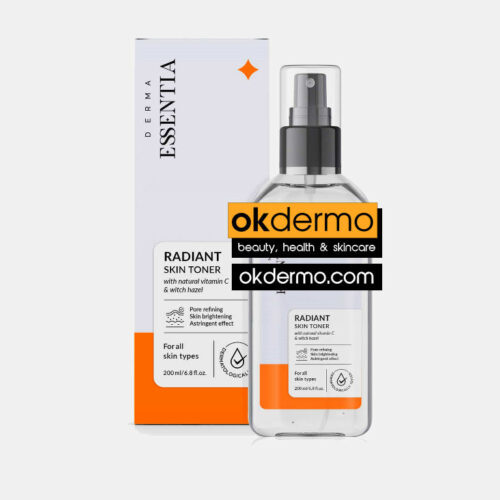
Vitamin C Radiant® Skin Toner
Kakadu Plum Vitamin C + Witch Hazel 1% + Aloe Vera
Size: 200ml / 7fl.oz
USD $35.00 Add to cart -
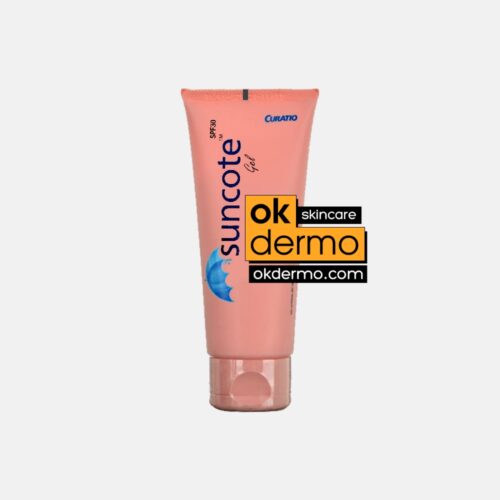
Suncote® Sun Protection Gel
Oily & Acne-Prone Skin Moisturizer Sunscreen SPF-30
Size: 100g / 3.5oz
USD $23.00 Add to cart -
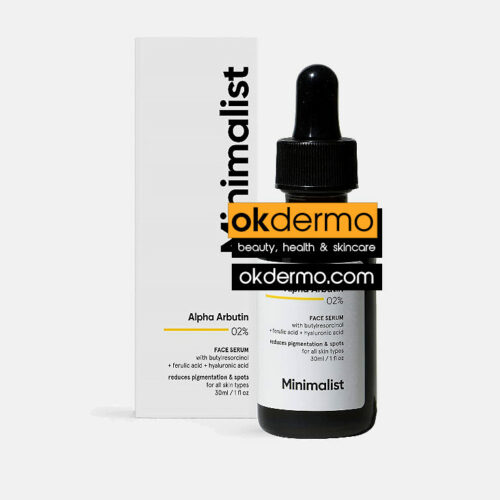
Minimalist® Alpha Arbutin Face Serum
Alpha Arbutin 02% + Butylresorcinol + Ferulic Acid + Hyaluronic Acid
Size: 30ml / 1fl.oz
USD $29.00 Add to cart -
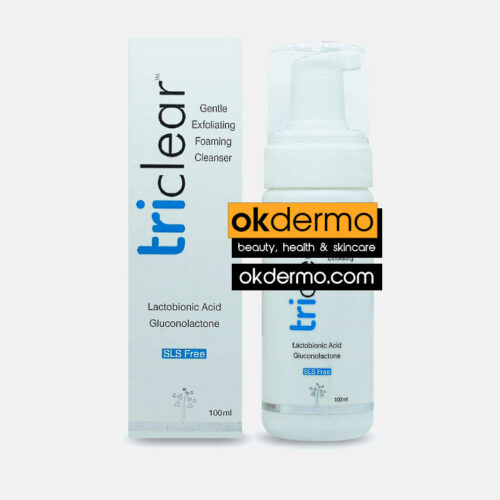
Triclear® Gentle Exfoliating Foaming Cleanser
Lactobionic Acid + Gluconolactone
Size: 100ml / 3.4fl.oz
USD $28.00 Add to cart
Identifying Your Hyperpigmentation
Understanding the specific type of hyperpigmentation you’re dealing with is crucial for effective treatment. Here are three key approaches to identify and distinguish between various types:
-
Self-Assessment Techniques
Begin by examining your skin closely in natural light. Sun-induced hyperpigmentation, or sunspots, often appears as flat, brownish patches on sun-exposed areas like the face and hands.
Post-inflammatory hyperpigmentation might manifest as dark marks or spots where you’ve had acne, cuts, or other skin injuries. Melasma tends to exhibit symmetrical, brownish patches on the face and is often associated with hormonal changes.
Self-assessment involves monitoring changes in your skin over time and noting factors that may trigger or worsen hyperpigmentation. Keep a skincare diary to track product usage, sun exposure, and hormonal fluctuations.
-
Professional Skin Analysis
Consulting with a dermatologist or skincare professional can provide a more accurate diagnosis of your hyperpigmentation. Advanced tools, such as Wood’s lamp or skin imaging devices, can reveal underlying pigmentation concerns not visible to the naked eye.
Dermatologists can also assess your overall skin health, identify potential triggers, and recommend personalized treatment plans.
By combining self-assessment with professional insight, you can pinpoint the type of hyperpigmentation you’re dealing with, paving the way for a more tailored and effective skincare routine.
Crafting Your Skincare Routine
The first step to building the best hyperpigmentation treatment plan is to adopt a holistic skincare routine that addresses the root causes and prevents further damage. Here are some key elements to consider:
Gentle Cleansing and Exfoliation
Cleansing your skin twice a day with a gentle cleanser is essential to remove dirt, oil, makeup, and impurities that can clog pores and cause inflammation.
Exfoliating your skin once or twice a week with a gentle scrub or chemical peel can also help remove dead skin cells and improve skin texture and tone. However, be careful not to overdo it or use harsh products that can irritate your skin and worsen hyperpigmentation.
Targeted Ingredients for Hyperpigmentation
After cleansing and exfoliating your skin, you need to apply products that contain ingredients that can specifically target hyperpigmentation and brighten your skin. Some of the most effective ingredients are:
– Vitamin C: Vitamin C is a powerful antioxidant that can neutralize free radicals that cause oxidative stress and damage to your skin. It can also inhibit tyrosinase, an enzyme that controls melanin production. By applying a vitamin C serum daily, you can boost your skin’s collagen production, reduce inflammation, fade dark spots, and enhance your skin’s natural glow.
– Retinoids: Retinoids are derivatives of vitamin A that can stimulate cell turnover and increase collagen synthesis. They can also regulate melanin production and prevent excess pigmentation. By using a retinoid cream or gel nightly, you can improve your skin’s texture, firmness, elasticity, and clarity.
Sunscreen is Non-Negotiable
The most important step in your skincare routine is to apply sunscreen every day with at least SPF 30 and broad-spectrum protection. Sunscreen is your best defense against sun-induced hyperpigmentation and premature aging.
It also helps prevent further darkening of existing spots and protects your skin from harmful UV rays that can damage your DNA and cause skin cancer.
Deep Dive into Treatments
In addition to your general skincare routine, you may also consider some professional treatments that can offer faster and more dramatic results for hyperpigmentation.
However, these treatments are not without risks and side effects, so you need to consult with a dermatologist before undergoing any of them. Some of the most popular treatments are:
– Hydroquinone: Hydroquinone is a bleaching agent that can lighten hyperpigmentation by blocking melanin synthesis. It is available in various concentrations over the counter or by prescription. However,
hydroquinone has been banned in some countries due to its potential toxicity and carcinogenicity. It can also cause skin irritation, allergic reactions, and paradoxical darkening of the skin. Therefore, it should be used with caution and under medical supervision.
– Niacinamide: Niacinamide is a form of vitamin B3 that can reduce hyperpigmentation by inhibiting melanosome transfer from melanocytes to keratinocytes. It can also improve skin barrier function, reduce inflammation, and hydrate the skin.
– Alpha Arbutin and Licorice Extract: Alpha Arbutin and licorice extract are natural ingredients that can lighten hyperpigmentation by inhibiting tyrosinase activity. They can also have anti-inflammatory and antioxidant effects on the skin. Alpha arbutin and licorice extract are gentle and suitable for sensitive skin. They can be used alone or in combination with other ingredients for synergistic effects.
-
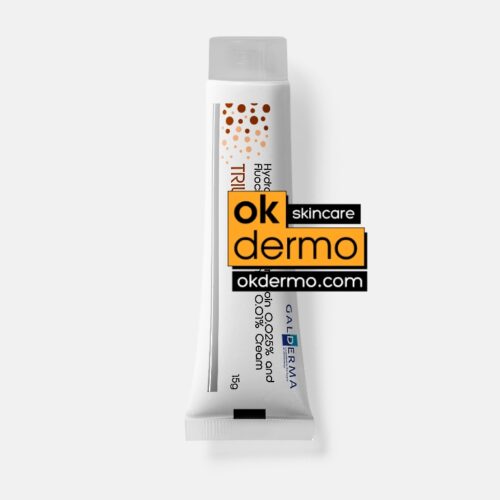
Tri-Luma® Cream for Hyperpigmentation
Hydroquinone 2% / 4% + Tretinoin 0.012% / 0.05% + Fluocinolone 0.01%
Size: 15g / 0.53oz, 20g / 0.7oz
Brand name: Lumiquin, Lumacip Plus, Refaquin, Retrieve
From USD $35.00 Select options -
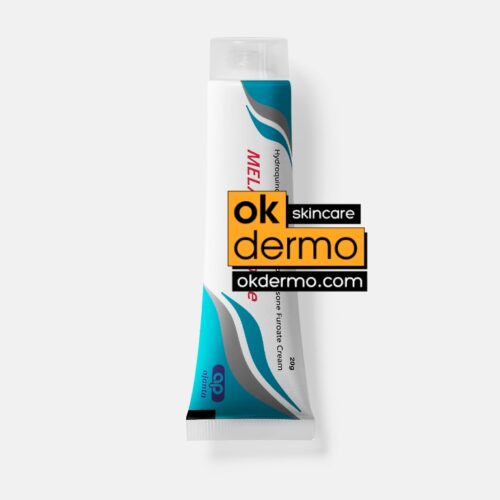
Melacare Forte® Triple Action Cream
Hydroquinone 4% + Tretinoin 0.025% + Mometasone 0.1%
Size: 25g / 0.9oz
USD $24.00 Add to cart -
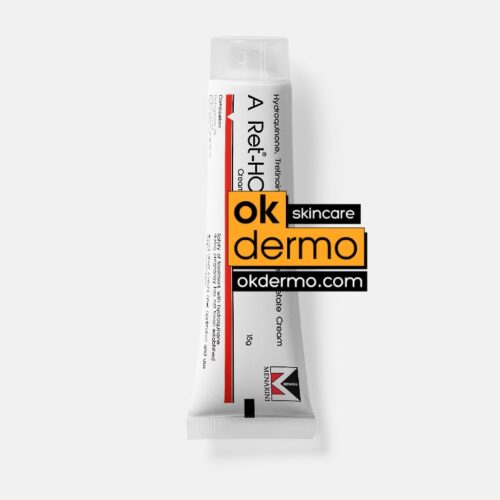
A Ret-HC® / Melanorm-HC® Skin Cream
Hydroquinone 2% + Tretinoin 0.025% / 0.05% + Hydrocortisone Acetate 1%
Size: 15g / 0.53oz
Brand name: Pigmanorm, Katarya, Kataryaxn, Ketarya, Kevarya
From USD $24.00 Select options -
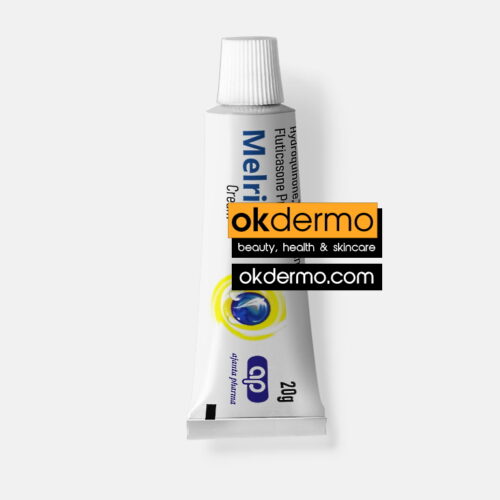
Melrio® Skin Whitening Cream
Hydroquinone 2% + Tretinoin 0.025% + Fluticasone Propionate 0.05%
Size: 20g / 0.7oz
Brand name: Tri-Luma
USD $24.00 Add to cart
Key Takeaways
To summarize, here are some key points to remember when dealing with hyperpigmentation:
– Follow a holistic skincare routine that includes gentle cleansing, exfoliation, targeted ingredients, and sunscreen.
– Prioritize sun protection to prevent further damage and pigmentation.
– Choose targeted ingredients wisely and look for products that contain vitamin C, retinoids, niacinamide, alpha arbutin, or licorice extract.
– Understand the nuances of hyperpigmentation treatments and consult with a dermatologist before undergoing any of them.
– Be patient and consistent with your skincare regimen and treatments as results may take weeks to months to show.
Conclusion
Hyperpigmentation is a common and frustrating skin issue that can affect your self-esteem and confidence. However, with the right knowledge, products, and treatments, you can effectively treat hyperpigmentation and unveil your radiant and flawless skin. Remember, beauty is more than skin deep, but having clear and healthy skin can definitely boost your mood and confidence. So don’t let hyperpigmentation hold you back from shining your brightest!
FAQs
-
Can hyperpigmentation be completely cured?
-While complete cure varies depending on the type, cause, and severity of hyperpigmentation, diligent skincare can significantly reduce hyperpigmentation and improve your skin’s appearance.
-
Is sunscreen really that essential for treating hyperpigmentation?
– Yes, sunscreen is non-negotiable when it comes to treating hyperpigmentation. It prevents further pigmentation and protects treated skin from sun damage that can undo your efforts.
-
What makes niacinamide effective for hyperpigmentation?
– Niacinamide is effective for hyperpigmentation because it soothes and brightens the skin, inhibiting melanin production for a more even skin tone. It also has other benefits for the skin, such as improving hydration, barrier function, and inflammation.
-
Are natural extracts like licorice effective in treating hyperpigmentation?
– Yes, natural extracts like licorice are effective in treating hyperpigmentation because they have skin-lightening properties that can reduce melanin synthesis. They also have anti-inflammatory and antioxidant effects that can benefit the skin.
-
How long does it take to see results from hyperpigmentation treatments?
– Results from these best hyperpigmentation treatment options vary depending on the type, cause, and severity of hyperpigmentation, as well as the type of treatment used. Generally speaking, noticeable improvement may take weeks to months of consistent use of skincare products or treatments.
Post by:
Marcella Jiovanni
Skin Care Professional
“Marcella Jiovanni actively promotes the importance of maintaining healthy skin, she envisions the future of dermatology as moving away from pure medical, pharmacological dermatology and flowing more toward a holistic approach to wellness and skincare.”

